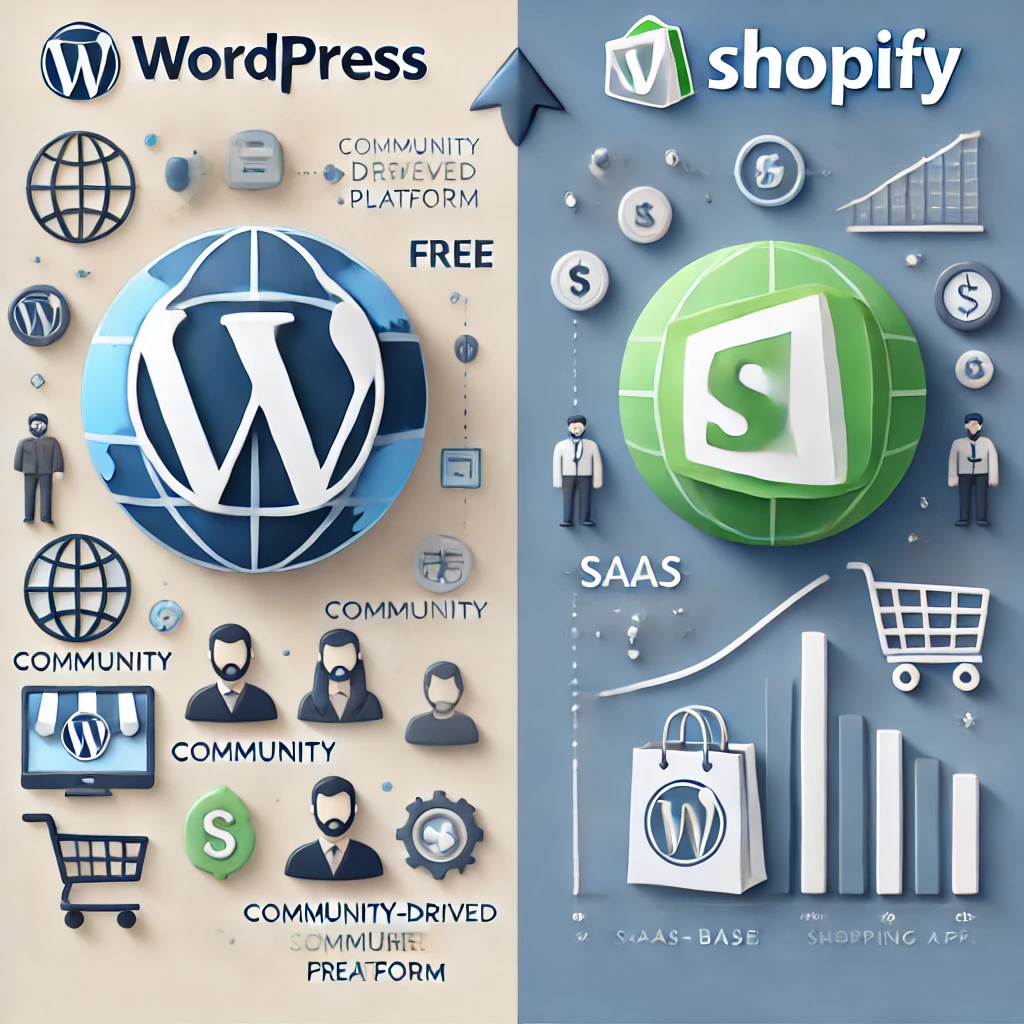The difference in market share and corporate value between WordPress and Shopify stems from their business models and the value they provide. Below is a detailed analysis of the reasons for this difference.
1. Difference in Business Models
-
WordPress:
- It is open-source and available for free, allowing anyone to download and use it.
- Additional functionalities are extended through plugins, themes, and web hosting services, which are mostly provided by third-party vendors.
- Since WordPress itself offers the platform for free, its direct revenue model is limited.
- Automattic (the parent company of WordPress) generates revenue mainly through paid services like WordPress.com, Jetpack, and WooCommerce.
- As a result, despite high user market share, WordPress has a structure where corporate value is not easily reflected.
-
Shopify:
- It operates on a SaaS (Software as a Service) model, where users pay a monthly subscription fee.
- Shopify provides an all-in-one solution, including hosting, payment processing, theme and plugin marketplaces, and marketing tools.
- Additionally, Shopify secures steady revenue through payment processing fees (Shopify Payments) and app store earnings.
- The more transactions happen on the platform, the more revenue Shopify earns on an ongoing basis.
2. Profitability and Business Scalability
-
WordPress:
- The majority of WordPress-based websites are managed by small-scale developers or web hosting companies who directly generate revenue.
- WordPress itself relies on community-driven growth and has limited revenue from platform operations.
-
Shopify:
- Shopify provides robust e-commerce solutions targeting both small and large businesses, generating recurring revenue through subscriptions and transaction fees.
- Shopify’s ecosystem maximizes revenue potential after the storefront is established (payments, shipping, marketing, etc.), making it highly scalable.
- The Shopify revenue model is stable and repeatable, making it attractive to investors.
3. Investor Evaluation of Corporate Value
-
WordPress:
- WordPress relies on open-source contributions and independent developer ecosystems.
- Automattic (WordPress operator) is a private company, limiting its corporate valuation evaluation.
- WordPress generates revenue primarily through add-on services (WordPress.com, Jetpack, etc.), leading to relatively lower corporate value.
-
Shopify:
- Shopify is a publicly traded company, and investors evaluate its corporate value based on revenue growth and profitability.
- Shopify is highly regarded among tech stocks for its stable revenue model and strong growth.
- Despite a smaller user base compared to WordPress, Shopify maintains a higher corporate value thanks to its direct revenue generation model.
4. Primary Users and Market
-
WordPress:
- It is used by websites of all sizes, including blogs, content-focused sites, and even e-commerce with WooCommerce, but it requires customization.
- Most users are individuals or small businesses looking to reduce costs.
-
Shopify:
- It specializes in e-commerce, providing users with an environment to quickly build and manage online stores.
- Shopify serves both small businesses and large enterprises, creating an ecosystem centered around e-commerce.
Conclusion
WordPress, despite its high global website market share, has a community-driven and free structure that makes it difficult to evaluate corporate value directly. In contrast, Shopify leverages a SaaS business model specialized for e-commerce, enabling stable and recurring revenue, making it more attractive to investors. Corporate value is primarily determined by profitability and investor confidence, which is why Shopify is valued higher than WordPress.

댓글쓰기